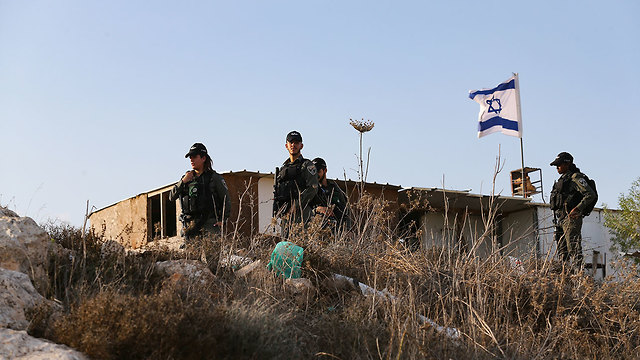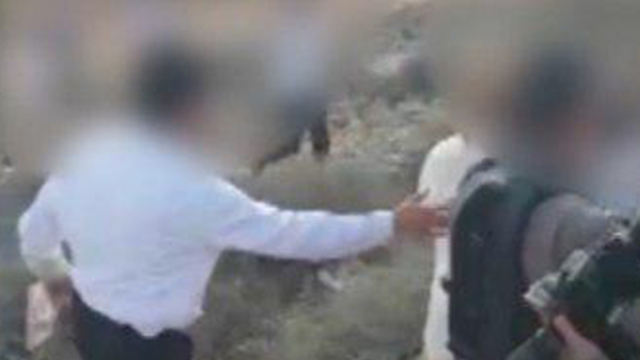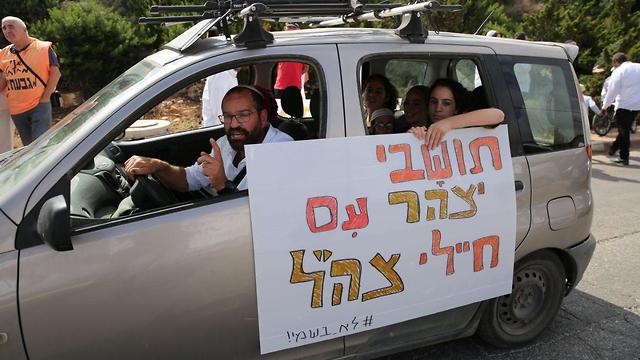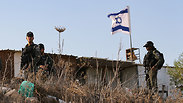
The recent violent events against Israeli troops at the West Bank settlement of Yitzhar shouldn't surprise anyone.
The Shin Bet security service has reported a rise in these sort of incidents since the beginning of the year.
The friction between local Palestinians and Yitzhar settlers came to a head over an olive harvest, but the reason for all the attention currently surrounding the settlement is the fact that IDF soldiers are being attacked.
Our collective memory is short, and we have forgetten how over the last two decades we have seen a endless cycle in which soldiers and even their commanders are attacked, after which demands are made of the IDF chief of staff and the prime minister to support the soldiers - "our boys."
The last week has seen a gradual rise in tensions, culminating in the moment when settlers of Yitzhar singled out a company commander after he arrested one of their friends during a scuffle with Palestinians in the area.
From that moment, officers in the sector say, they targeted him and all those who belong to his unit.
On Saturday evening, these settlers blocked the car of Golani Brigade company commander Lt. Col. Ayub Kayuf, hurling insults at him and threatening to seize his vehicle. He wasn't physically harmed but felt very threatened and afterwards filed a complaint with the police.
A youth involved in the incident was arrested by the police but released two days later.
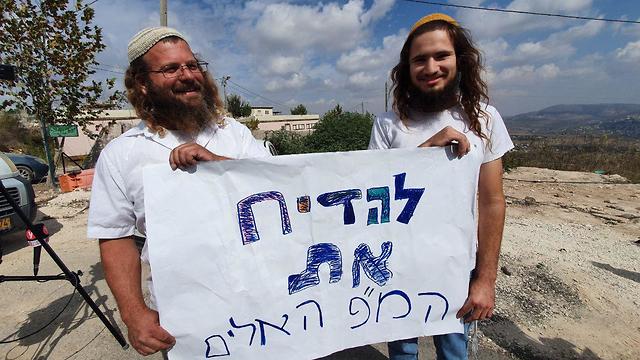
According to the IDF, the day after this incident was marked by an escalation in the area, with a group of about 30 settlers gathering around Yitzhar, hurling rocks at IDF soldiers and puncturing the tires on their patrol vehicles.
The rock attack lightly wounded an IDF soldier and his comrades retaliated by dispersing the crowd in a rare display of live fire into the air.
Soldiers from the unit didn't even use this method when dispersing protests in the Palestinian village of Kafr Qaddum a few months earlier.
At this stage, one must thoroughly examine the IDF's actions and decisions.
Firstly, why did the Israeli army deploy one of its combat units to an area that requires policing by police officers?
These are soldiers trained for war, not for dealing with settlers, or separating them from Palestinians during olive harvest, arresting the individuals responsible for attacks and then having to deal with them again when they come to settle scores.
This is a task for the Shin Bet, the police and the Border Police, not the Golani Brigade.
Immediately after the incident, the IDF top brass decided to move a Border Police unit into the area. Why wasn't this done sooner?
Such disturbances are the Border Police's speciality - its forces are armed and trained properly for such tasks. Why did the IDF have to wait until tensions reached this point?
The decision by GOC Central Command Maj. Gen. Nadav Padan to deploy Golani troops to the area from the start deserves criticism.
It should be noted that in the past, other generals have "punished" settlements where soldiers were attacked by pulling the troops out of the area.
As for the condemnations – it is true that in comparison to previous similar incidents, the settlements have rid themselves of these criminals and voiced condemnation of the attacks (even if there were other calls inside Yitzhar to support the settlers), but still this is not enough.
Condemnation has to be followed by action - denunciation and punishment of those responsible to make sure these kinds of people don't rise up again.
Experience has taught us that the state does not have the right tools to deal with these people.
But if anyone does, it's the leaders of the settlements and their residents. The solution is punishment and deterrence. Words of condemnation alone will not suffice.















